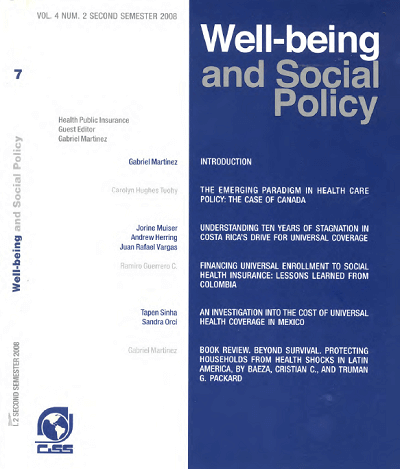
The paper discusses the financing of the health care reform implemented in Colombia since the early nineties and explains the obstacles faced on the way to universal enrollment to social health insurance. The paper describes the reform and the sources created for its financing. It presents the observed trends in the financing of the insurance schemes created by the reform, identifies the obstacles faced on the way to universal enrollment and uses an accounting model to weigh each of these obstacles and explore how enrollment would have evolved under alternative scenarios. This retrospective accounting leads to prospective discussion that identifies the lessons to be learned from the experience of a middle income country like Colombia in the implementation universal health insurance. The main lessons are that structural informality in the labor should be carefully considered while designing a financing scheme that relies (even if partially) on payroll based contributions, and that fiscal constraints can severely limit a country 's capacity to reach universality. Institutional constraints and administrative processes needed to run a health insurance scheme should not be overlooked. A main challenge is how to enroll independent workers and effectively target subsidies for those without capacity to pay.
